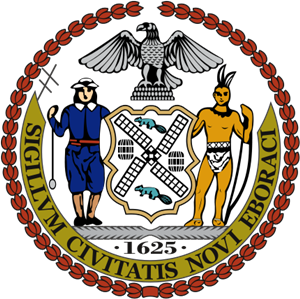October 28, 2016 •
New York City, NY Clarifies Definition of Lobbying for Builders
The Office of the City Clerk released an advisory opinion to clarify language in the city administrative code. Pursuant to Administrative Code §3-211(c), “lobbying” or “lobbying activities” include any attempt to influence any determination made by an employee of the […]
 The Office of the City Clerk released an advisory opinion to clarify language in the city administrative code.
The Office of the City Clerk released an advisory opinion to clarify language in the city administrative code.
Pursuant to Administrative Code §3-211(c), “lobbying” or “lobbying activities” include any attempt to influence any determination made by an employee of the city with respect to the terms of the acquisition or disposition by the city of any interest in real property, with respect to a license or permit for the use of real property of or by the city, or with respect to a franchise, concession or revocable consent.
Due to the above language, builders were concerned obtaining a building permit would be considered lobbying activity. In Advisory Opinion 2016-1, the city clerk concluded an application to the Department of Buildings (DOB) for work permits and any ensuing communications with employees of the DOB are not lobbying or a lobbying activity under the Administrative Code.
Photo of New York City by AngMoKio on Wikimedia Commons.
July 15, 2015 •
Proposed Rules to New York City’s Lobbying Law
The Office of the City Clerk has proposed amended rules to chapter 1 of title 51 of the Rules of the City of New York pursuant to the enactment of Local Law 129 of 2013, which amended the city’s lobbying […]
 The Office of the City Clerk has proposed amended rules to chapter 1 of title 51 of the Rules of the City of New York pursuant to the enactment of Local Law 129 of 2013, which amended the city’s lobbying law.
The Office of the City Clerk has proposed amended rules to chapter 1 of title 51 of the Rules of the City of New York pursuant to the enactment of Local Law 129 of 2013, which amended the city’s lobbying law.
The rules propose the following: set forth the procedure for enrolling in e-Lobbyist; define the roles of principal officer, designee, and compliance officer; provide requirements for retainers and authorization letters; indicate when filing extensions may be obtained; set forth the procedures for obtaining a waiver of late filing penalties; establish enforcement procedures; and create an amnesty program.
The amnesty program sets forth eligibility criteria for lobbyists and clients who have not previously complied with the city’s lobbying law, allowing such individuals to come into compliance without penalty for a given period of time.
A public hearing was held and the proposed rules are still under consideration by the Lobbying Bureau.
State and Federal Communications, Inc. provides research and consulting services for government relations professionals on lobbying laws, procurement lobbying laws, political contribution laws in the United States and Canada. Learn more by visiting stateandfed.com.

